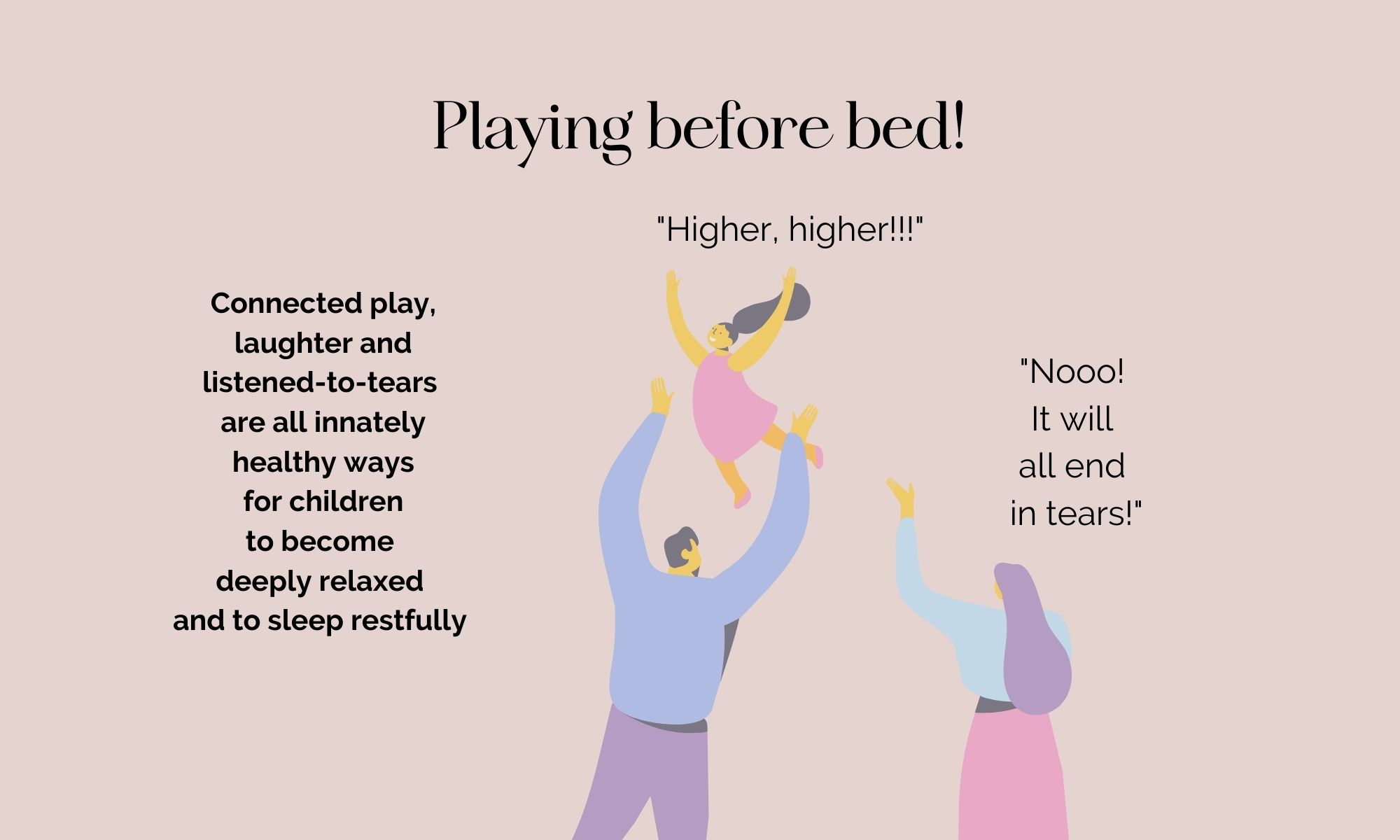Have you ever noticed that your child can become extra playful, just when you’re wanting them to ‘wind down’ to sleep?
One of the many things I love about Aware Parenting the deep trust it has in a child’s innate wisdom.
A child’s system is designed to facilitate relaxation, leading to restful and nourishing sleep.
And that makes so much sense, doesn’t it, given that sleep is so important for our wellbeing!
It wouldn’t make sense from an evolutionary perspective that children would need to be taught to sleep by us, or would take many years to be able to sleep restfully.
When children are being extra playful in the evening, they’re trying to use their inbuilt relaxation processes so that they can feel naturally relaxed and sleep restfully. This is their natural wisdom in action.
Parents might say, “they’re fighting sleep,” but often it’s our conditioning that leads us to work against their natural wisdom, when we try to ‘make them calm down’ rather than following their lead in what helps them feel truly physically and emotionally calm.
Joining in and playing with them in particular ways helps maximise two of the key things they need to be able to sleep soundly:
1. It helps them feel deeply connected, signalling to their nervous system that it’s safe to sleep;
(Think of all of those pre-industrialisation years where children always slept close to adults, and where feeling disconnected would have meant possible danger.)
2. Play and laughter help them release pent-up feelings such as frustration, fear and powerlessness so that they feel physically and emotionally relaxed and can sleep more peacefully.
(Part of the amazing release and relaxation processes that we’re all born with.)
And what about that old adage, “it will all end in tears”?
Tears are another natural relaxation process, as long as we are listening to our child with loving presence.
The more connected and relaxed a child feels, the easier it is for them to go to sleep and sleep peacefully and restfully.
We can follow their lead with this:
If they are jumping around and being silly and goofy, we can jump around and be silly with them!
If they’re laughing and having fun, and suddenly they get pinchy or bitey or hitty, we can offer a loving limit and listen to the feelings that the attachment play has helped bubble up to the surface. “I’m not willing for you to hit me, sweetheart, and I’m right here, and I’m listening.”
If they want to keep playing for hours even though they’re clearly tired, we can again offer a loving limit and listen to the feelings, knowing that unexpressed feelings are preventing them from feeling relaxed enough to sleep.
If they’re laughing and suddenly the laughter turns to tears or a tantrum, we can stay lovingly present with them and listen to the feelings that are naturally coming up to be expressed so that they can sleep more peacefully. We can respond lovingly, “I’m here with you, sweetheart. I’m listening.”
Trusting children and their natural relaxation processes can make all the difference when it comes to sleep!
The more we understand attachment play (created by Aletha Solter, Ph.D.), the more we can cooperate with all the ways children are naturally using play to relax, heal, connect and understand their world.
If you’d like to learn more, I have a very low cost video training on children playing before bed, here!
